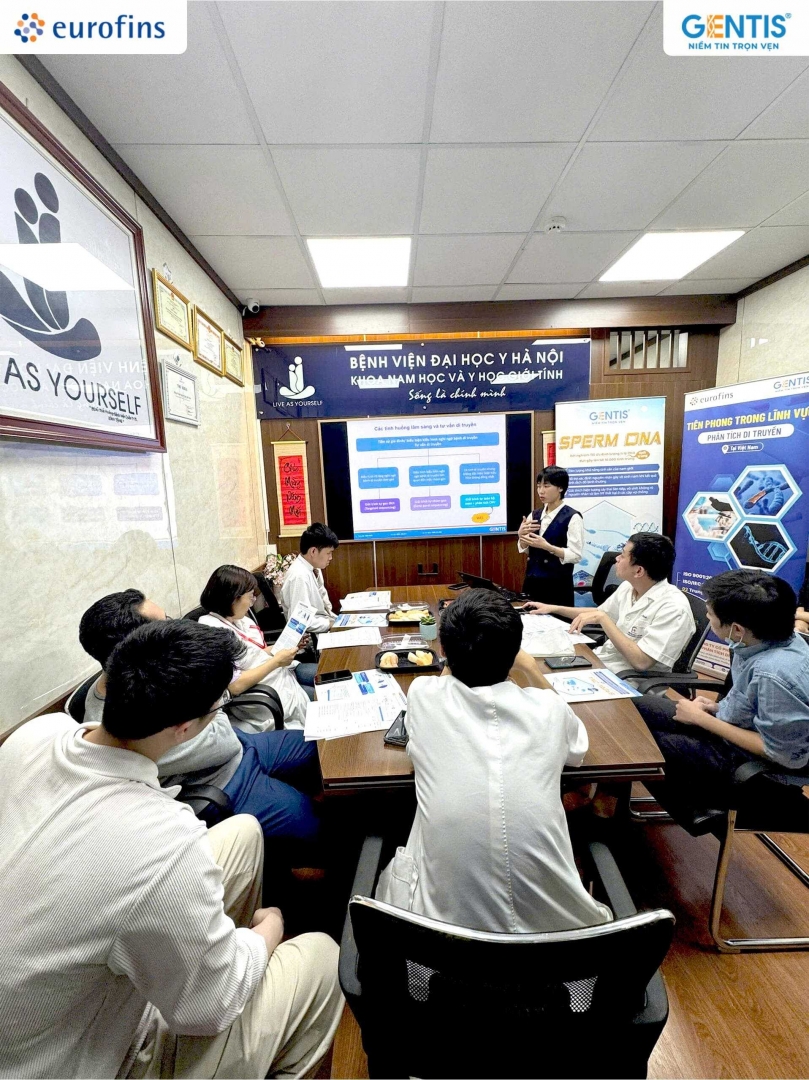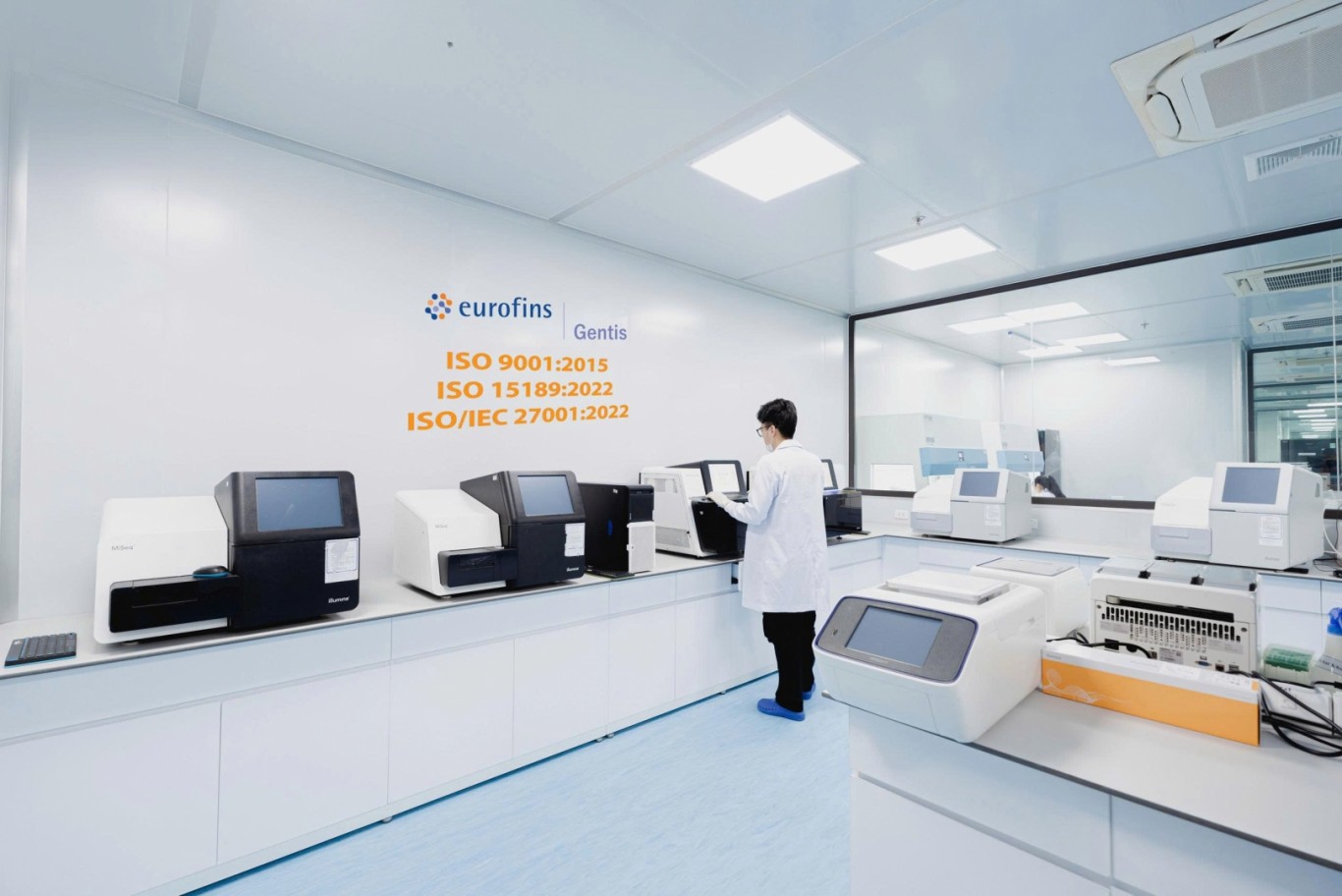The seminar at Hanoi University of Medicine was attended by numerous experts and doctors from the Department of Andrology and Sexology, such as Associate Prof. Dr. Nguyen Hoai Bac (Head of the Department), MSc. Dr. Tran Van Kien, MSc. Dr. Do Ich Dinh, MSc. Dr. Chu Thi Chi, and MSc. Dr. Nguyen Cao Thang. From GENTIS, the seminar was attended by MSc. Hoang Thi Nhung (Head of R&D) and MSc. NT. Vu Thu Huong (R&D Specialist).

At the beginning of the seminar, MSc. NT. Vu Thu Huong explained that high levels of sperm DNA fragmentation are one of the causes of male infertility. There are many factors that lead to sperm fragmentation. According to MSc. NT. Vu Thu Huong, Sperm DNA testing is an essential method for evaluating the overall quality of a patient's sperm. This test helps quantify the percentage of sperm DNA fragmentation by detecting color changes in a dye through a flow cytometry system (which analyzes up to 10,000 sperm), helping identify the cause of infertility in cases where the semen analysis result is normal.
In addition, the sperm DNA fragmentation test can also explain repeated miscarriages, unexplained infertility, and failed IVF attempts. Therefore, evaluating sperm quality through sperm DNA fragmentation testing is extremely necessary, as it helps doctors predict fertility potential and determine the most suitable intervention for assisted reproduction.
At GENTIS, sperm DNA fragmentation (Sperm DNA) tests are conducted using the SCSA (Sperm Chromatin Structure Assay) method, ensuring high stability, accuracy, and performance.
A unique feature of this test is the clear categorization of sperm DNA fragmentation thresholds. This helps doctors better screen cases of unexplained infertility, thus guiding treatment intervention.
In addition to the Sperm DNA fragmentation test, the seminar also featured a discussion of new information about the Whole Exome Sequencing (WES) test. According to MSc. Hoang Thi Nhung (GENTIS), WES is a DNA sequencing method aimed at analyzing the entire protein-coding region, or Exons, in the human genome. GENTIS uses next-generation sequencing (NGS) technology on the NovaSep 6000 system to sequence the entire exon region of around 22,000 genes (covering over 85% of disease-causing mutations). This allows for the detection of point mutations, small deletions/inserts, and CNVs. Whole Exome Sequencing provides the ability to diagnose genetic diseases of unknown causes, particularly rare and complex diseases, and detect genetic variants associated with neurological, cardiovascular, and other conditions.

Through the discussion, doctors from the Department of Andrology and Sexology at Hanoi University of Medicine highly appreciated the significant improvements in WES and Sperm DNA testing and posed many in-depth questions regarding these two tests. This demonstrates the interest of medical professionals in GENTIS’s WES and Sperm DNA tests. We hope that after this scientific seminar, GENTIS will continue to have the opportunity to collaborate and work with Hanoi University of Medicine in the future!











